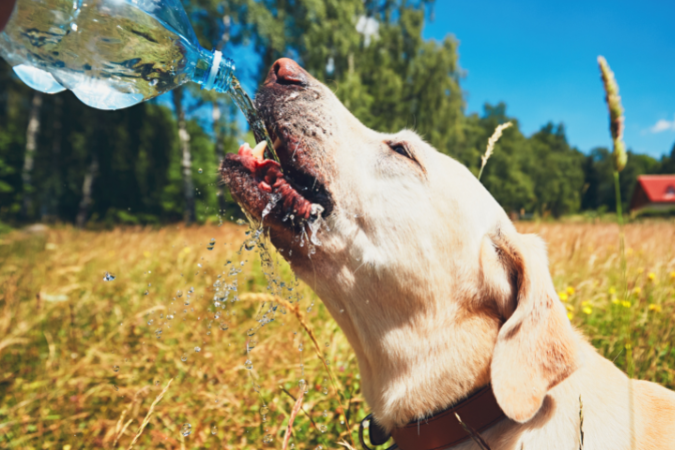If you're like most people, you have a tube of antibiotic cream in your medicine cabinet to treat cuts, scrapes, and wounds. Because let's face it, both people and pets can easily get injured during day-to-day activities.
And, while most of the time minor injuries like cuts and scrapes are not serious, they can become infected if they're not properly treated.
But what if there was an all-natural alternative that worked just as well – or even better? Virgin coconut oil (VCO) is a natural antibacterial, antiviral, and antifungal agent, making it the perfect choice for treating cuts, scrapes, and wounds.
In this blog post, we'll discuss why VCO is so effective for healing injuries and how to use it correctly to speed up the healing process.

The Potent Healing Properties of Virgin Coconut Oil
VCO contains a number of fatty acids that have potent antibacterial, antiviral, and anti-fungal properties. For example, lauric acid – which makes up around 50% of the fatty acids in VCO – has been shown to kill harmful bacteria, viruses, and fungi.
In fact, one study showed that it was effective against bacteria that are resistant to common antibiotics, such as methicillin-resistant Staphylococcus aureus (MRSA).
Two more medium-chain fatty acids (MCFAs) found in VCO, capric and caprylic acid, are also effective at killing bacteria, viruses, and fungi. A separate study showed that these MCFAs had an antimicrobial effect against Candida albicans – a type of yeast that can cause infections in people and pets.
Not only does VCO kill harmful bacteria, viruses, and fungi, but it also helps to reduce inflammation, soothe the skin, and speed up the healing process. This is because the antibacterial properties of the oil help damaged tissue regenerate and heal while also preventing infection.
In another study, researchers evaluated the effect of topical application of VCO and found that VCO-treated wounds healed much faster, antioxidant enzyme activities increased, and observed a higher turnover of collagen.
What's more, VCO is also a good source of vitamin E, a powerful antioxidant that supports skin health and helps promote rapid healing.
In summary, thanks to the cumulative effect of these beneficial fatty acids and other healing components, VCO is an effective natural remedy for treating cuts, scrapes, and wounds.
In the next section, we'll discuss how to use VCO both topically and orally to treat minor injuries and speed up the healing process.
How to Use Virgin Coconut Oil for Cuts, Scrapes, and Wounds
There are two main ways to use VCO for treating cuts, scrapes, and wounds: topically and orally. Let's discuss each method in more detail.
Topical Application
To use VCO topically on minor cuts, scrapes, or wounds, simply massage a small amount of the oil into the affected area. You can also soak a cotton ball in VCO and apply it to the injury. When applying topically to pets, you may want to cover the area with a bandage or wrap to help protect the area from dirt and further injury and to prevent them from licking it off.
As mentioned earlier, the powerful antibacterial, antiviral, and anti-fungal properties of VCO will help to kill any harmful bacteria or fungi that could cause an infection. In addition, the anti-inflammatory properties of the oil will help reduce swelling and pain while also promoting healing.
For best results, apply VCO to cuts, scrapes, and wounds two to three times per day until the injury has healed. And of course, always contact your veterinarian if your pet has a serious injury or you're concerned about an infection.
Oral Application
In addition to topically applying VCO, you can also give it to your pets orally (or take it yourself) to promote healing from the inside out. This is because the MCFAs in VCO – lauric acid, capric acid, and caprylic acid – are easily absorbed by the body and can help to boost the immune system.
To give VCO to your pets orally, simply add a small amount to their food once or twice per day. The appropriate amount to give will depend on the type of animal and their weight. Check out our previous post, How to Use Coconut Oil With Your Pets, for an overview of the recommended dosage for each type of pet.
As for humans, the best way to take VCO orally is by consuming one or two tablespoons per day, either on its own or added to food. You can also cook with VCO, add it to smoothies, coffee, or tea, or use it in a salad dressing – the options are endless!
Taking VCO daily is a great way to boost overall health and wellness, but it's especially beneficial for supporting the immune system and promoting healing. And that means if you or your pets do happen to get a cut, scrape, or wound, you'll be more likely to heal quickly and without any complications.
Protect Your Family and Pets With CocoTherapy Organic Virgin Coconut Oil!
So, there you have it – everything you need to know about why VCO is so effective for cuts, scrapes, and wounds. Be sure to stock up on this amazing natural remedy so you're prepared the next time an injury occurs!
Check out our bestselling CocoTherapy Organic Virgin Coconut Oil today and protect the health of your human and furry family members!



